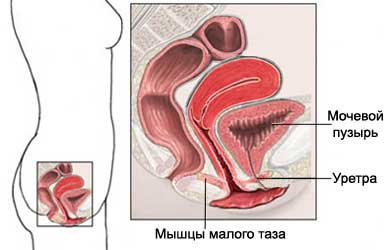Injection Koaptayt – Injections Coaptite
Description injection Coaptite
Ripe – gel-like substance. It is introduced into the urethra near the bladder woman. Urethra – a flow tube, through which urine exits the body from the bladder. Ripe – “means of increasing the volume”, which increases the urethral wall, to prevent uncontrolled urination and leaking urine.

What are injected Coaptite?
This procedure applies to women, who develop stress incontinence. This type of incontinence is caused by weakening of the bladder muscles or muscle, that control the flow of urine.
Possible complications of injections Coaptite
Before, how to perform the injection Coaptite, you need to know about possible complications, which may include:
- Trouble urinating due to swelling of the urethra;
- Blood in the urine;
- Urodynia;
- Urinary tract infections;
- Frequent urination;
- Frequent urination;
- Continued incontinence;
- Bleeding;
- Damage to the urethra;
- Reaction to anesthesia.
This procedure should be avoided, if the patient has a history of these disorders:
- Urinary tract infections;
- Current irritation of the bladder or urethra;
- The wall of the urethra to be easily damaged.
We need to discuss these risks with your doctor before the injection.
How is the injection Coaptite?
Preparation for the procedure
A few days before the procedure, the doctor may prescribe:
- Medical checkup, blood and urine tests, as well as the procedures required to photograph internal organs;
- Discuss the type of anesthesia, to be used and the potential risks of its use.
Examinee may need to stop taking certain medications one week before the procedure,:
- Anti-inflammatory drugs (eg, aspirin);
- Blood thinners, such as clopidogrel or warfarin.
Other things, you must take before the procedure:
- Organize a trip to the home of the surgery and medical center;
- If there is an indication of a doctor, You can not eat or drink for eight hours before the procedure.
Anesthesia
This procedure can be done under local, spinal or general anesthesia. It will block any pain. It can also be used sedative, to alleviate anxiety.
Description injection procedures Coaptite
A nurse inserts a needle into the arm intravenously, at which the body fluids and medications fed. For local anesthesia, the nurse may also enter a special gel or liquid into the urethra. This procedure numb the area. If the patient is assigned spinal anesthesia, it is introduced into the spine. General anesthesia is fed intravenously through a catheter.
The doctor inserts a cystoscope (a small fiber-optic tube with a light source at the end) the urethra. This is done, to see the bladder. The doctor inserts a syringe with Coaptite to injection. It introduces the substance into the wall of the urethra near the bladder end. To freeze the used light pressure.
A second needle and syringe re-inserted into the urethra. The doctor enters the substance directly opposite the first injection. The injection may be repeated depending on the results.
Immediately after treatment
Depending on the type of anesthesia, the patient can sometimes be able to leave the hospital after the procedure.
How long will the injection Coaptite?
This procedure is performed on an outpatient basis. The patient will not have to remain overnight in the hospital. The procedure usually takes 15-30 minutes.
Injection Koaptayt – Will it hurt?
Anesthesia prevents pain during the procedure. The doctor may prescribe pain relievers, to reduce pain after injection.
Care after injection Coaptite
Care in a hospital
After the procedure, the hospital staff may provide the following assistance:
- Monitors the patient's vital parameters, until the end effect of anesthesia and / or sedation;
- Help the patient eat and move;
- Patients are given pain medicine.
Home Care
Upon returning home, you need to perform the following actions, to ensure the normal recovery:
- Take medications as directed, to reduce the chances of infection and pain;
- To avoid vigorous activity and hard work;
- It is necessary to drink plenty of fluids (8-10 glasses a day);
- No need to sit down behind the wheel or have sex, until the doctor says, it's safe;
- Be sure to follow your doctor's instructions.
Communication with a physician after injection Coaptite
After returning home, you need to see a doctor, If the following symptoms:
- The increase in pressure or pain in the bladder;
- The patient is not able to urinate;
- Changes in the frequency of urination, Smell, appearance, or volume of urine;
- Signs of infection, including fever or chills;
- Blood in the urine;
- Painful or burning urination;
- Leakage of urine.
